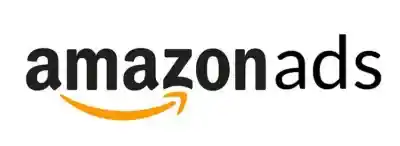What is a White Label DSP?
A White Label DSP (Demand-Side Platform) is essentially a fully customized and rebranded DSP product that agencies, advertisers, or companies can use as their own. The term “white label” refers to a product or service produced by one company and rebranded by another, allowing them to sell or use it under their own name and branding. In the context of a White Label DSP, the technology is typically developed and maintained by a third-party provider, but it can be used without that provider’s label or branding.
Here’s a breakdown of what a White Label DSP entails:
- Fully Customized: The third-party provider will often offer extensive customization options, enabling the reseller to tailor the DSP’s look, feel, and functionality to their specific needs or the needs of their clients.
- Maintained: The original developer takes responsibility for maintaining the platform, providing updates, bug fixes, and technical support, thus ensuring that it remains functional and up-to-date.
- Developed DSP: A DSP is a system that allows digital advertising inventory buyers to manage multiple ad and data exchange accounts through a single interface. It provides features such as automated real-time auction ad buying, targeting, optimization, and detailed analytics.
- Allows for Purchases Without a Label: The reseller can offer this platform to their clients under their own brand, without any indication of the original developer. This can be particularly advantageous for advertising or marketing agencies that wish to provide a seamless branded experience for their clients.
White Label DSPs can be a cost-effective way for businesses to expand their service offerings without having to develop the underlying technology from scratch. It’s particularly relevant in the rapidly changing world of digital advertising, where having access to sophisticated tools can be a significant competitive advantage. The provider’s expertise in areas such as programmatic advertising and contextual targeting can be leveraged to enhance the overall product, making it an attractive option for those in the advertising field.
What are the Benefits of White Label DSP?
White Label DSPs offer significant advantages, particularly for marketing agencies and companies looking to expand their digital advertising capabilities:
- Cost-Efficiency: Developing a DSP from scratch requires substantial investment in time, money, and expertise. By using a White Label DSP, a company can gain access to state-of-the-art technology at a fraction of the cost.
- Quick Market Entry: As the technology is already developed and tested, businesses can rapidly deploy it and offer it to their clients, allowing for quicker response to market demands.
- Branding Opportunities: Being able to brand the DSP as your own enables a more cohesive and customized client experience, enhancing your brand’s value and reputation.
- Support and Maintenance: Ongoing support and maintenance from the original developer ensure that the platform remains up-to-date and functional, allowing businesses to focus on their core competencies rather than technical issues.
What are the Disadvantages of White Label DSP?
Despite the benefits, there are some potential downsides to be aware of:
- Limited Control: While customization is often available, the underlying technology remains controlled by the original developer, which may limit the extent to which the platform can be tailored to specific needs.
- Potential Dependence on a Third Party: Relying on a third-party provider for a critical business tool can pose risks, especially if the provider faces business challenges or discontinues support.
- Potential Quality Concerns: The quality of White Label DSPs can vary significantly between providers. Choosing a subpar product may lead to dissatisfaction and could negatively impact client relationships.
- Compatibility Issues: Depending on the existing technology stack and specific requirements of the business, there may be compatibility issues that make integration more challenging.
While White Label DSPs offer exciting opportunities for expansion and efficiency, careful consideration must be given to the choice of provider, the degree of customization required, and the overall fit within the existing business model and technological infrastructure.
« Back to Programmatic Glossary Index
Let’s Get Started !
Let the Gourmet Ads team walk you through all the options available to ensure that your Food, Supermarket, Beverage or Kitchen advertising campaign has the best possible combination of Premium Guaranteed Inventory, Scale, First Party Data, Contextual Targeting and Programmatic Advertising elements.






